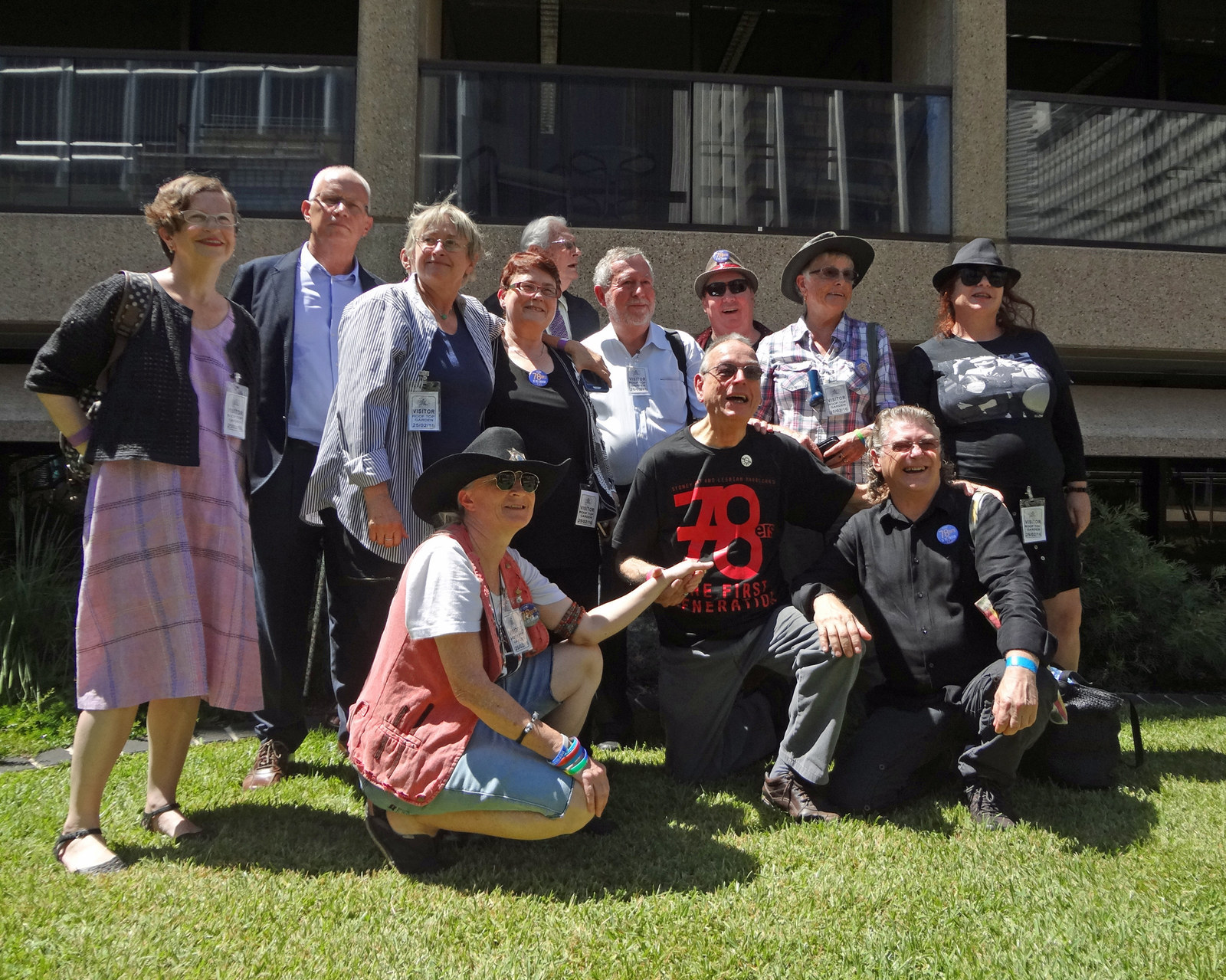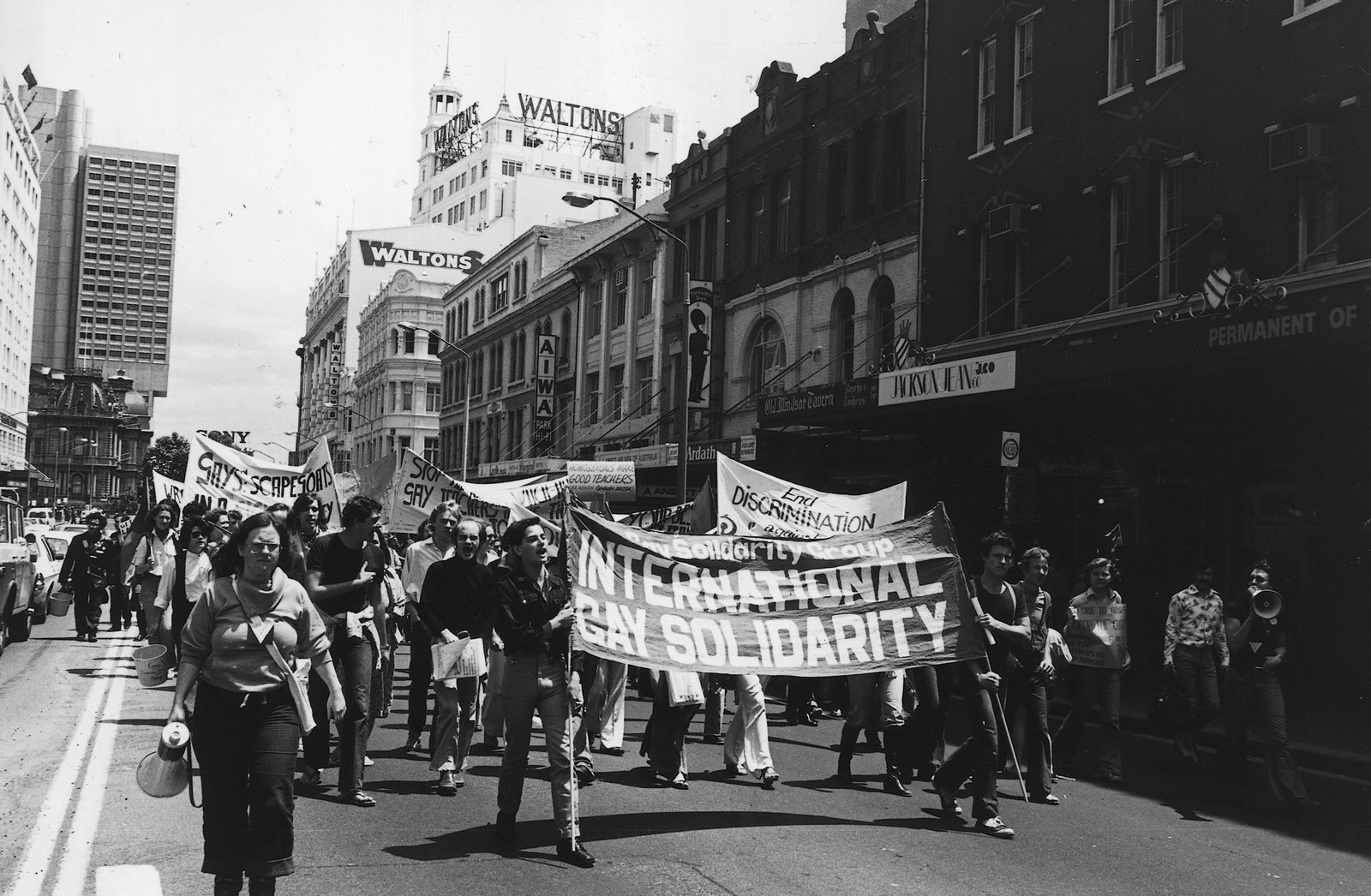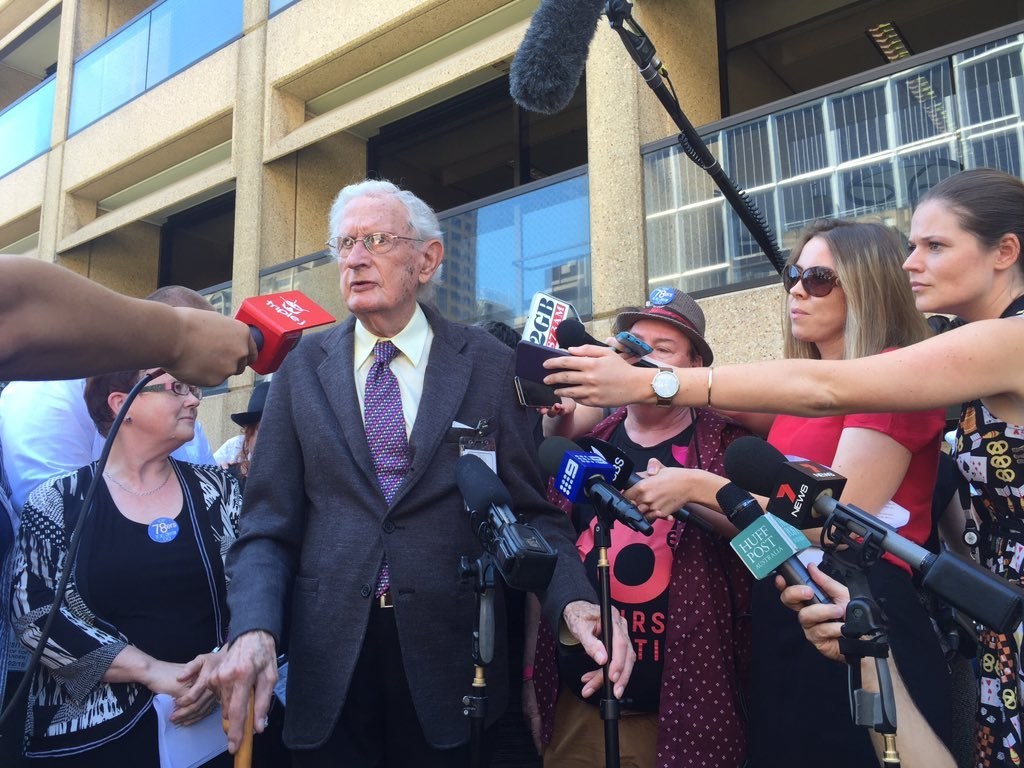UPDATE
The NSW Police Force has joined the NSW parliament and the Sydney Morning Herald in issuing an apology to the Mardi Gras '78ers.
"I can tell you that I spoke with Commissioner [Andrew Scipione] this morning – and I have his full support in saying that the NSW Police Force is sorry for the way that first Mardi Gras was policed back in 1978," said Superintendent Tony Crandell.
"For that – we apologise - and we acknowledge the pain and hurt caused by police actions back then."
"I work very closely with the LGBTI community and I understand the depth of feeling about the role of police back in 1978. Our relationship these days is healthy, positive and progressive. That wasn’t the case back then."
A statement from Supt Tony Crandell, spokesperson for Sexuality & Gender Diversity on behalf of the NSWPF.
A long-awaited formal apology has been issued to those who experienced arrest, assault, and being publicly outed in the press when they took part in Sydney’s first Mardi Gras parade in 1978.

On June 24, 1978, hundreds of people and allies in the LGBTI community gathered at Taylor Square in Sydney for a protest march on the day of International Gay Solidarity.
After marching down Oxford Street and College Street, the protest turned into a riot when the marchers met with police at King's Cross.
Many were assaulted by police, and 53 people were arrested and subsequently had their names, jobs and addresses published in the Sydney Morning Herald.

Speaking to the parliament, member for Coogee Bruce Notley-Smith described the "electric atmosphere" of the parade, and its disappointing, violent end.
"Many were ostracised by their family, dumped by their friends, sacked by their employers – not for being arrested, but because they were homosexual," he said.
"For the mistreatment you suffered, as a member of this parliament which oversaw the events of that night, I apologise and say I'm sorry."
"The actions you took on June 24 1978, the pain and suffering meted out to you on that night and afterwards was undeserved. On that evening, you lit a flame under the gay rights movement in Sydney that burned its way to law reform and acceptance."
The parliament rose in a standing ovation after Notley-Smith's speech. Premier Mike Baird was in parliament to hear the apology.

Opposition MP John Robertson thanked the '78ers for "standing up for what was right".
"I do so as the parent of a son who could go to school and be who he is," Robertson said.
Greens member for Newtown Jenny Leong called on the NSW Police to offer an apology for their actions in 1978.
"There is nothing I have witnessed that goes to the fear, intimidation, and conscious brutality that the 78ers experienced that night," she said.
“I am calling on the NSW Police Commissioner Andrew Scipione to... offer a formal apology to all '78ers for the hurt and suffering caused by the actions of NSW police.”
Several other members of the Legislative Assembly also rose to offer their apologies.

Marcher Ron Austin recalled being followed by police as the "higgledy-piggledy" parade made its way to King's Cross.

"We were sick and tired of being second class citizens... It was intolerable, inexcusable," he said.
Austin added that the apology was "very comprehensive", but that he was "past apologies".
"I got on with being who I was long ago," he said.
The parliamentary apology comes one day after Sydney Morning Herald editor-in-chief Darren Goodsir issued an apology for publishing the 53 names of the arrested.

“In 1978, the Sydney Morning Herald reported the names, addresses and professions of people arrested during public protests to advance gay rights,” Goodsir said in a statement.
“The paper at the time was following the custom and practice of the day. We acknowledge and apologise for the hurt and suffering that reporting caused."

